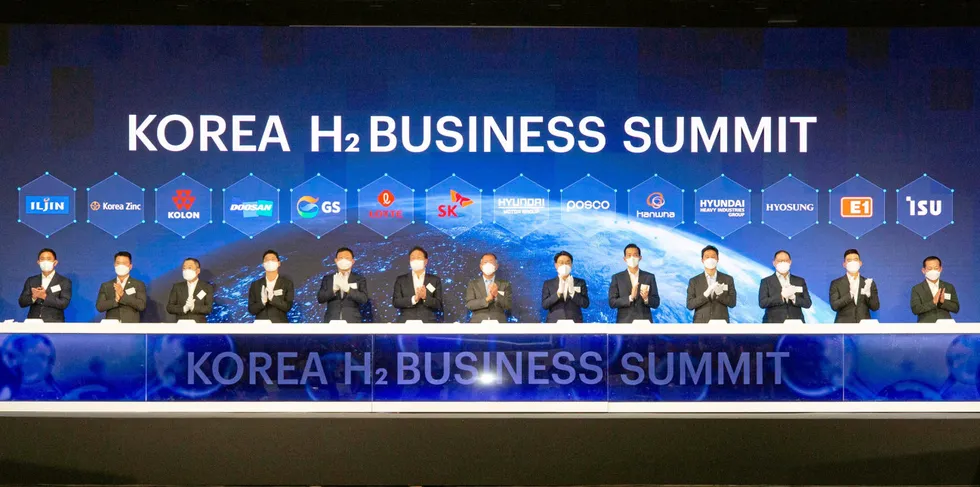Samsung, Hyundai and other 'chaebols' join forces in $37bn Korean hydrogen pact
In rare act of unity, 11 of South Korea's all-powerful conglomerates form business council to drive H2 expansion at home and abroad

In rare act of unity, 11 of South Korea's all-powerful conglomerates form business council to drive H2 expansion at home and abroad
